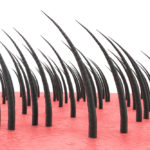Hair Loss
Posted on August 15, 2019
With the increase in popularity of vaping happening these days among men and women of all ages, I am asked about whether the inhalation of these substances can cause hair loss. The answer is YES. People have been led to believe that vaping is less […]
Read More
Posted on July 8, 2019
A recent article in Time Magazine questioned whether wearing a hat can cause hair loss. While there were a few instances describing how it could contribute to hair loss, they only occur very rarely. Wearing a baseball hat, however, often is a sign to a […]
Read More
Posted on May 30, 2019
Actor Rob Lowe, 55, recently made some rather distasteful comments about Prince William of Great Britain’s hair loss. He said, “Honestly, one of the great traumatic experiences of my life was watching Prince William, 36, lose his hair.” I guess that is not so bad; […]
Read More
Posted on May 16, 2019
Summer is just around the corner, though it’s hard to believe with the extended wet and cold Spring we have been experiencing in New England. Hopefully it’s a short corner! It is important for men and women with thin hair or baldness to protect their […]
Read More
Posted on March 12, 2019
Have you heard about PRP and ACell injection therapy for hair restoration? This innovative combination technique from our leading hair transplant surgeons uses your body’s own healing properties to stabilize progressively thinning hair as well as to promote growth of thicker, stronger hairs. If you […]
Read More
Posted on January 7, 2019
As a new year begins, it gives us the opportunity to look back on our achievements from the previous year. It’s a time to evaluate which goals were met and which are yet to be reached. It’s common do this for family issues and for […]
Read More
Posted on December 21, 2018
We at Leonard Hair Transplant Associates are commonly asked if there is a link between weight loss surgery (bariatric surgery) and hair loss. There are a couple of reasons why we often see hair loss after this treatment for obesity. First is that bariatric surgery […]
Read More







